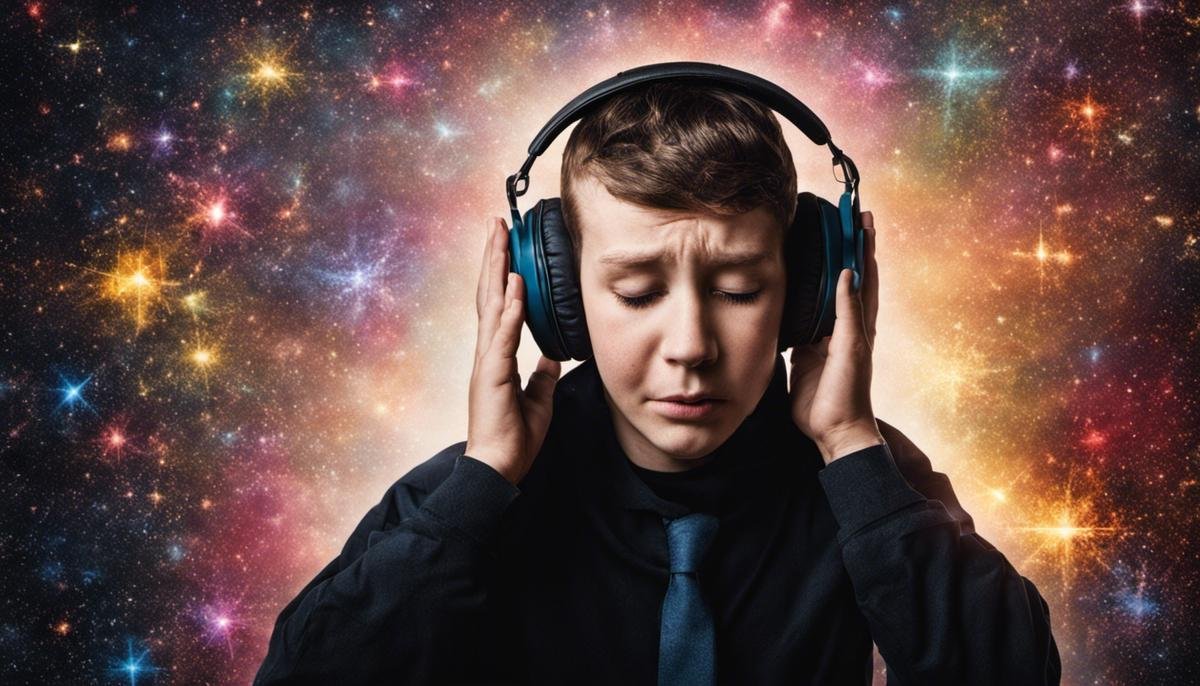
In the realm of neurodiversity, autism stands out as both a unique challenge and a significant force of individuality. The autistics, even though often diagnosed in childhood, continue to navigate through these challenges well into adulthood, encountering various hurdles in areas such as mental and emotional health, social interactions, independent living, and access to services. Early diagnoses and interventions undoubtedly play a vital role in fostering an environment conducive to their growth. However, it’s essential to understand that autism is not just a childhood condition; its dynamic presence evolves with each phase of life, therefore demanding continued support and guidance.
Understanding Autism in Adults
Understanding Autism as it Unfolds into Adulthood
Have you ever noticed it’s fairly common to find resources, tips, and advice around autism in children, yet not as much is discussed when the topic turns to adults with autism? The reality is indeed hard to ignore – autism doesn’t simply go ‘poof’ and disappear once our little ones blow out 18 candles on their birthday cake. If a loved one in your family is on the autism spectrum, knowing what happens as they mature into adulthood and how to support their transition can be vital.
Research shows that autism is not a condition that people grow out of – it is a lifelong neurodevelopmental disorder. The characteristics may shift and change over time, but they remain an intrinsic part of an individual’s personality. So, when we talk about autism in adults, what exactly do we mean?
Well, if we were to distill it down, we’re looking at three main areas: communication, social interaction, and repetitive behaviors. Adults with autism might face challenges in understanding or using nonverbal behaviors like eye contact or social distance. They might struggle to make or keep friends. And they might cling to routines, resist change, or engage in repetitive actions.
But the great news is that just like children, adults with autism can benefit tremendously from a supportive environment. This support can mean many things – from understanding employers who scaffold workplace routines, to societal acceptance of neurodiversity, to friends and family who love and respect them just as they are.
Adults with autism might find adulthood daunting with all its complexities and demands – from employment to relationships to independent living. However, with the right tools and strategies, they can successfully navigate it.
Employment in particular, can offer a great sense of fulfillment and independence for adults with autism. It’s important to find a job that aligns with their skills and interests. Careers in areas such as technology, animal care, and art, where detail orientation and an ability to focus are key, can be incredibly rewarding. If they struggle with traditional job settings, self-employment or working from home could be potential options.
In terms of relationships, love doesn’t discriminate when it comes to autism. Adults with autism might encounter obstacles or misunderstandings in their relationships. Communication, patience, and understanding are key to bridge these gaps.
Now, let’s talk about independent living. With patience and proper supports, many adults with autism can master the skills needed to live on their own. The aim is to foster independence, but that doesn’t mean they have to do it alone. Seek resources to provide training in life skills, use visualization and repetition to teach, and provide plenty of opportunities for practice.
Just like the rest of us, every adult with autism is unique and so are their journeys through adulthood. As family members, caregivers, and friends, our role is to provide love, support, and understanding as they navigate their path. In doing so, we could ultimately open the door to an enriching life for our loved ones, brimming with possibilities, accomplishments, and joy.

Mental and Emotional Health
The Intricate Dance of Adult Autism, Mental Wellness, and Emotional Health
Autism is a many-splendored synesthesia of the mind; it paints mundanities with an alternative palette that’s as perplexing to the neurotypical world as it is enlightening. Now understood as a lifelong neurodevelopmental disorder, autism strongly impacts an individual’s mental and emotional health in a multifaceted and nuanced manner.
One of the primary ways it does so is through the intensity of sensory experiences. Unlike their neurotypical counterparts, adults with autism often cradle an unfiltered sensitivity to light, noise, texture, or taste, nudging them toward overstimulation or anxiety. This reality can generate a two-fold demand – for patient understanding from close associations and a faithfulness to coping strategies from the individuals themselves. Tools like noise-cancelling headphones, fidget toys, or calming routines can prove to be invaluable lifelines in the rippling seas of sensory overload.
Alongside such physical intricacies, anxiety disorders significantly intersect with autism in adults. This intersection can be closely interlinked with their heightened sensory experiences, communication difficulties, or a swift waterfall of thoughts that may lead to an overwhelming sense of apprehension or fear. Cognitive-behavioral therapy (CBT) is a popular treatment option for anxiety disorders and can be adapted for adults with autism by adopting visual methods and breaking down complex concepts.
Depression is another layer in this complex scaffold of mental health. Adults with autism are more susceptible to depression due to a range of potential triggers like social isolation, discrimination, ability-related frustrations or unresolved anxiety. Implementing personalized and empathy-driven interventions, such as psychotherapy, and maintaining an open dialogue about mental health is pivotal for their emotional well-being.
One overlooked aspect of mental health pertaining to adults with autism revolves around their self-perception. The cultural narrative surrounding autism often leans toward the negative, rendering internalized stigmas and a dampened self-esteem. The reclamation of their narrative and ascertaining their self-worth is an empowering endeavor that can enhance their mental health. Encouraging adults with autism to engage with a community, both virtual and physical, that reverberates with acceptance and growth, helps to foster self-confidence and resilience.
But perhaps, no facet of their emotional health is as crucial as their loved ones also understanding the cohabitation of autism and mental health. Understanding their world filled with different hues, the need for routine, the necessity of straight-forward communication, their unique idioms of affection, can go a long way in ameliorating their mental and emotional health.
Adults with autism are neither defined nor confined by their autism. The dance of autism, mental wellness, and emotional health is one that continues through the corridors of their existence, an existence that yearns for understanding from those within their echo and beams of their brilliance from within them. And it’s a dance that society can certainly learn to appreciate in its full and radiant spectrum. In fairness, isn’t that what we all seek – to be seen, to be heard, to be accepted?

Social Interactions and Relationships
While the previously outlined topics have touched upon the importance of a supportive environment, the unique journeys adults undertake, and the many challenges adults with autism face, there is always more depth to explore. Some facets of autism that remarkably impact the lives of adults are their sensory experiences and associated mental and emotional health.
Adults with autism often perceive stimuli differently than neurotypical individuals, which can lead to sensory overload. Imagine the discomfort of high-pitched noise, harsh lights, or rough textures multiplied several times more. Sounds, sights, or touches that appear familiar or comforting to us could be incredibly distressing for them. This discrepancy creates unique stressors, which can significantly impact their mental and emotional health. Understanding these sensory experiences and developing appropriate coping strategies is crucial.
There are several tools and techniques that adults with autism can use to manage sensory overload, allowing them to function in an environment that may not entirely cater to their unique sensory preferences. Sensory friendly clothing, quiet spaces, noise-canceling headphones, and stress relief items like sensory beads can be beneficial.
Anxiety disorders often intersect with autism in adults, which can be traced back to the apprehension of being in a sensory overwhelming environment or the fear of social interactions. Cognitive-behavioral therapy, which involves identifying negative thought patterns and providing healthier alternatives, can be incredibly effective in dealing with anxiety disorders in adults with autism.
Another significant area of concern is depression in adults with autism. They might experience feelings of isolation, misunderstanding, or a lack of acceptance, which can trigger depressive episodes. It is crucial to have open dialogues about mental health and personalized interventions to ensure emotional well-being.
Self-perception and self-esteem also assume paramount importance in adults with autism. Growing in a world that perceives you differently can sometimes lead to self-doubt. However, engaging with a supportive community that endorses growth, provides opportunities for learning and contributing, and fosters self-confidence can have a positive impact on their self-esteem.
Loved ones play a critical role in shaping the mental and emotional health of adults with autism. A little understanding can go a long way in easing their struggles. Welcoming their unique perspectives, validating their feelings, and providing consistent emotional support essentially influence their overall well-being.
Lastly, emphasizing acceptance and understanding for individuals with autism is a societal responsibility. Recognizing and accepting that every individual perceives and interacts with the world differently is a step towards inclusivity. Remember, adults with autism aren’t any less capable, they are just differently-abled. Difficulties in social interactions and relationships shouldn’t be a barrier, but instead an opportunity to appreciate diversity and foster understanding.

Independent Living and Employment
While autism is known to pose unique challenges in communication, social interactions, and behaviors, another critical aspect of this disorder often overlooked involves sensory experiences. Adults with autism can encounter heightened sensitivity to their environment, leading to an intense response to sounds, lights, or textures, which we call sensory overload. This can cause significant distress and anxiety on emotional health, making simple daily tasks feel overwhelmingly difficult. Imagine having your sense of smell or touch magnified exponentially – a whiff of perfume or the feel of a cotton shirt might be overwhelming. It’s our responsibility to empathize and better understand these experiences.
Adults with autism typically use a range of coping strategies to manage sensory overload. These can include using earplugs to dampen noise, wearing sunglasses to reduce sensitivity to light, or choosing comfortable clothing with softer textures. Integrating these considerations into daily routines could drastically reduce the experience of sensory overload and subsequently lessen anxiety.
Speaking of anxiety, it often intersects with autism in adults. Anxiety disorders, such as social anxiety and generalized anxiety disorder, are more common in adults with autism. Cognitive-behavioral therapy (CBT) is often useful in managing these anxiety disorders. This type of therapy aims to help individuals change negative thought patterns and develop better coping strategies to manage anxiety productively.
Depression, too, is a prevalent concern among adults with autism. They may feel isolated because of difficulties relating to people or frustrated with their unique challenges. Identifying potential triggers for depression and intervening early with individualized interventions can do wonders for emotional well-being. Open dialogue about mental health should be encouraged to remove stigma and facilitate better understanding.
Now, let’s talk about self-perception and self-esteem – both crucial elements for anyone, but particularly for adults with autism. A positive self-view can significantly impact their ability to handle broader challenges and foster independence. Engaging with a supportive community of peers helps to establish growth and self-confidence. It inspires them to reach out, connect, and share their experiences.
And that’s where loved ones and caregivers come in. They play an invaluable role in understanding and supporting the mental and emotional health of adults with autism. Their constant support, encouragement, and unconditional love serve as a solid foundation for the adults to grow, explore, and thrive.
Last, it’s essential to emphasize the role society plays in accepting and understanding individuals with autism. It’s more than mere acceptance; it involves promoting accessibility, celebrating neurodiversity, and recognizing the inherent potential an adult with autism possesses. It means valuing them as complete individuals, treating them with respect, and providing an environment of equality.
In conclusion, the path to independence and employment for adults with autism isn’t always linear, but it’s achievable with adequate support, understanding, and respect from their families and society at large. As we continue to learn and appreciate their unique journeys, their success and independence become a shared aspiration for us all.

Accessing Services and Support
Understanding Sensory Experiences in Autism
One critical aspect of adult autism that tends to be overlooked is the sensory experiences. Most individuals with autism perceive the world uniquely – sounds can be louder, colors can be more intense, and smells can be stronger. These amplified sensory perceptions can induce overwhelming responses, potentially resulting in what experts aptly term as sensory overload.
Creating mechanisms to cope with sensory overload is crucial for adults with autism to live comfortably. These may include specialized tools such as noise-cancelling headphones or quiet spaces at work, or techniques such as grounding exercises. The key is identifying what works for each individual – everyone is unique.
Anxiety and Autism: Interconnected Challenges
Interestingly, research suggests a higher prevalence of anxiety disorders among adults with autism. It’s a double-edged sword: the challenges brought about by autism might exacerbate anxiety, which in turn, can intensify the symptoms of autism. Cognitive-behavioral therapy has proven effective in helping to manage anxiety disorders in adults with autism. Such personalized interventions involve tackling both the symptoms of autism and of anxiety concurrently.
Addressing Depression in Autism
Like anxiety, depression is more common among adults with autism than the general population. This susceptibility is due, in part, to the many pressures and misunderstandings experienced by individuals with autism. Identifying potential triggers helps in planning personalized interventions for depression. An open dialogue about mental health needs to be encouraged to raise awareness and carry out proper and timely intervention.
Boosting Self-Perception and Self-Esteem
Self-perception and self-esteem play a pivotal role in the overall well-being of adults with autism. However, they may struggle with these aspects due to various social barriers. It’s essential to encourage and promote positive self-perceptions, leading to a better understanding of one’s strengths and abilities. This reinforcement can be empowering, fostering self-esteem, and consequently, enhancing quality of life.
Resilience in Community and Loved Ones
Loved ones and caregivers offer an indispensable framework of care and support for adults with autism. However, a community’s role extends beyond immediate family and caregivers. Engaging with supportive communities—usually composed of people who understand, accept, and respect their unique experiences—can significantly foster self-confidence among adults with autism.
Society’s Role in Embracing Autism
As a society, everyone shares the responsibility of accepting and understanding individuals with autism. Creating an inclusive and understanding environment helps to minimize any potential triggers of anxiety and depression. It also encourages independence, self-confidence, and a robust self-perception. Promoting accessibility and celebrating neurodiversity isn’t simply an act of kindness, but a measure of human dignity and respect.
Supporting adults with autism is a holistic process, involving the efforts of caregivers, communities, and wider society. This process is not static but continues to evolve, always emphasizing love, support, acceptance, and understanding.

As we delve deeper into understanding the challenges that face adults with autism, one thing is clear—the journey doesn’t end with the transition into adulthood. The struggles with anxiety, depression, social interactions, and independent living continue to be a part of their lives. Recognizing these challenges is an important first step, but it’s even crucial to actively work towards building strong support systems and ensuring accessible services. Autism may pose various complexities, but with practical strategies, supportive environments, and unyielding empathy, adults with autism can face these hurdles and live a fulfilling life. So let’s all strive to foster compassion, widen our understanding, and create an inclusive society where everyone, including those on the autism spectrum, can fully participate and thrive.





